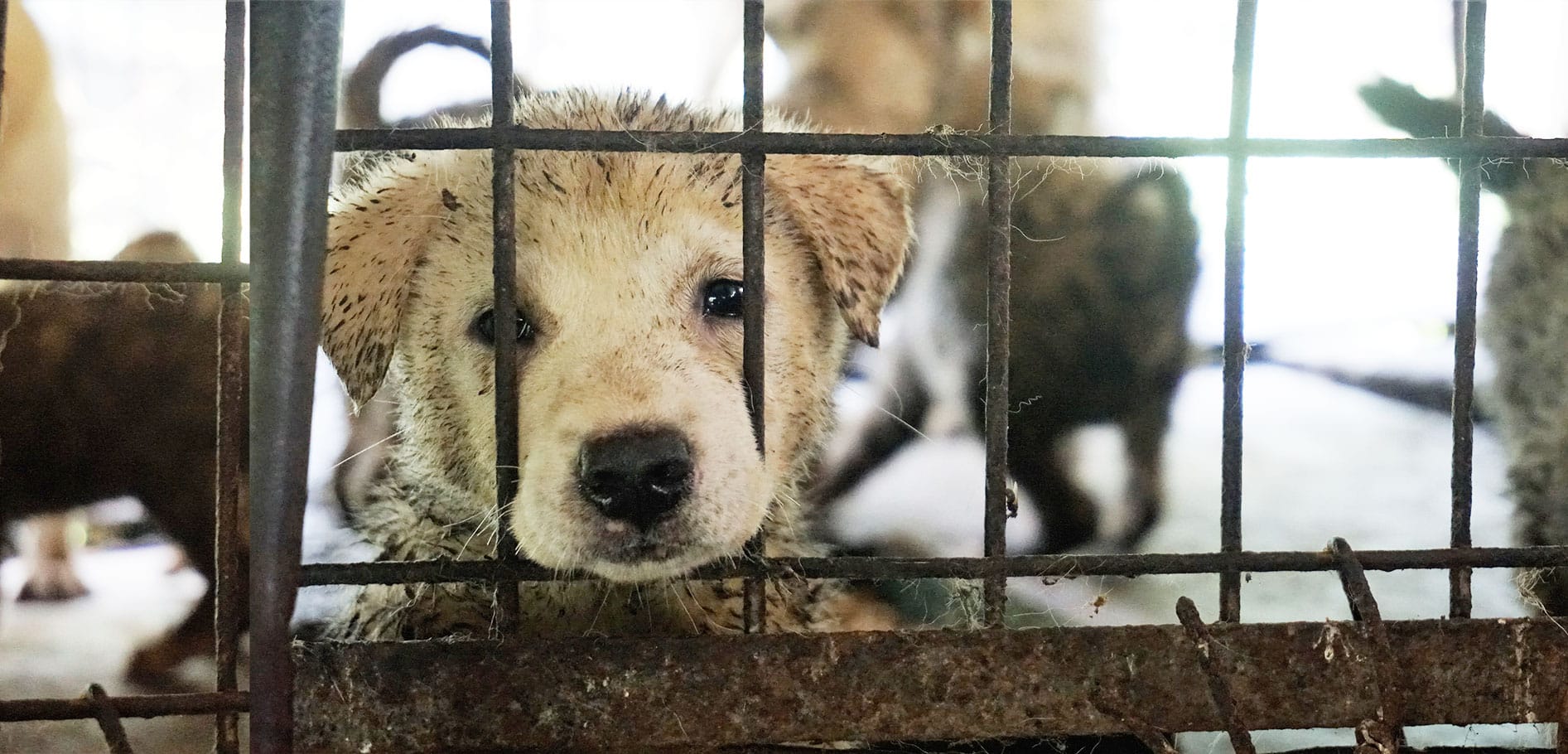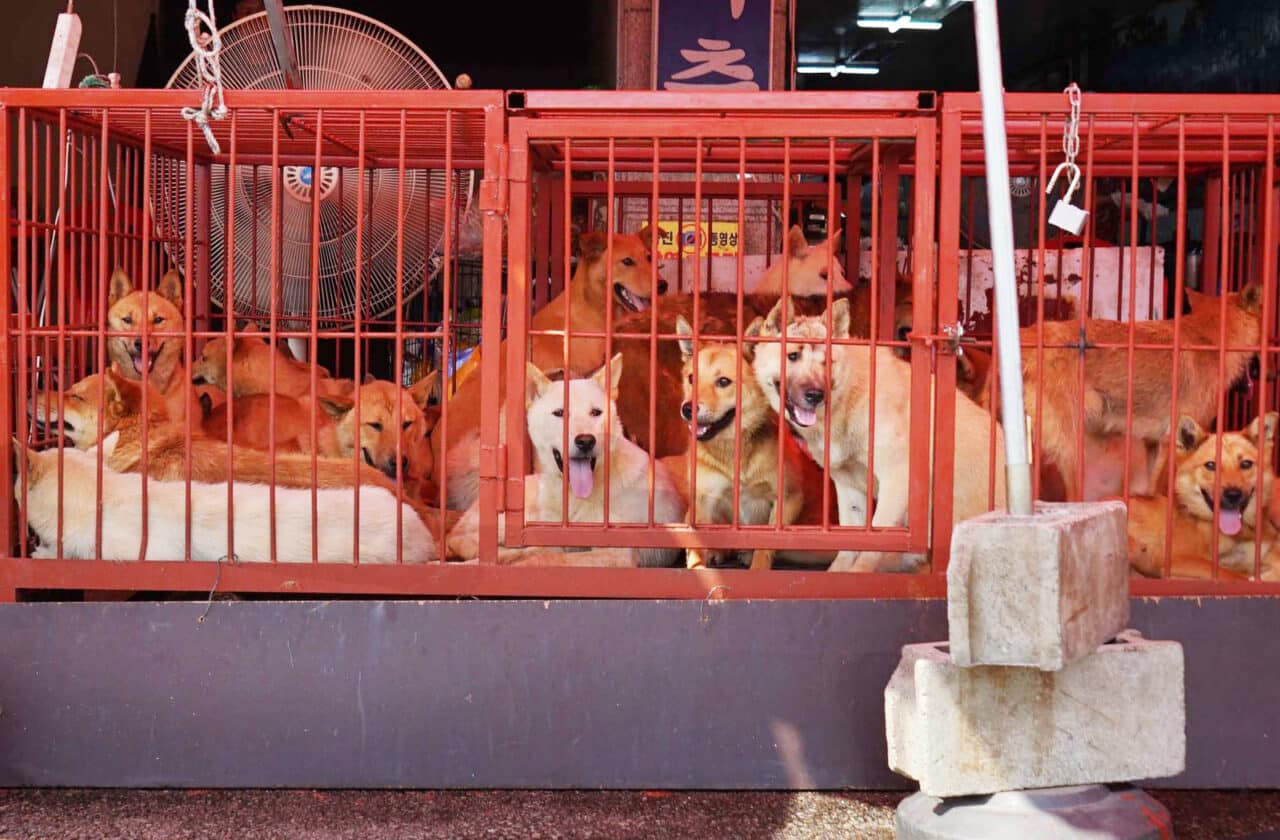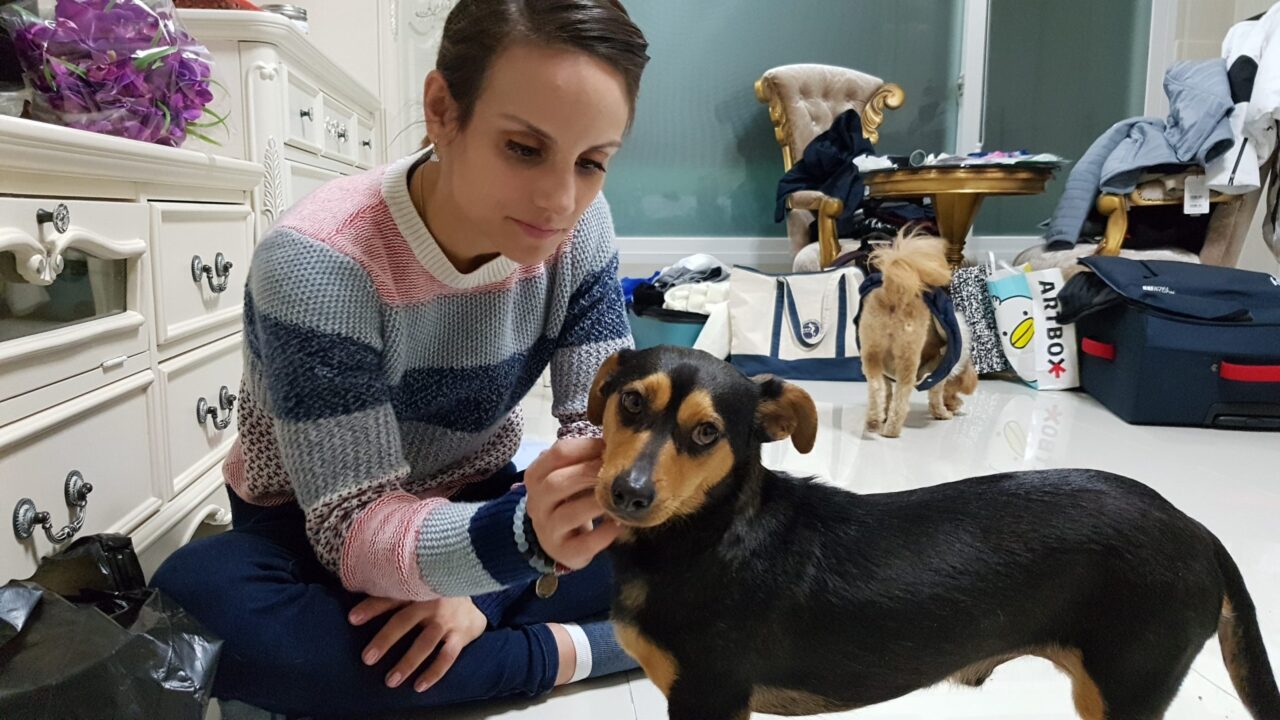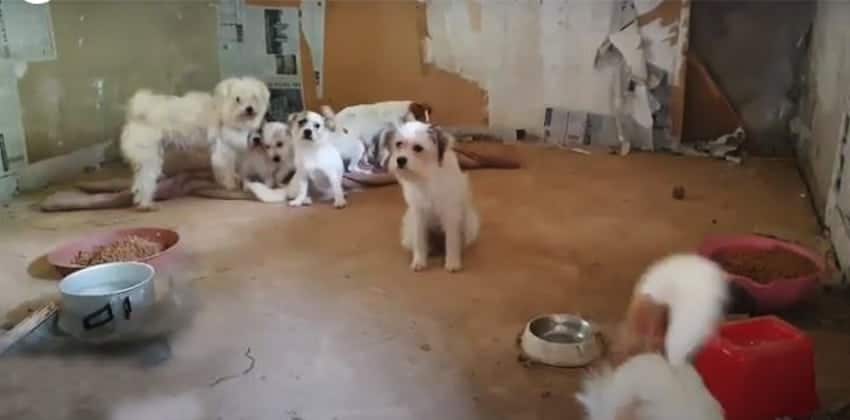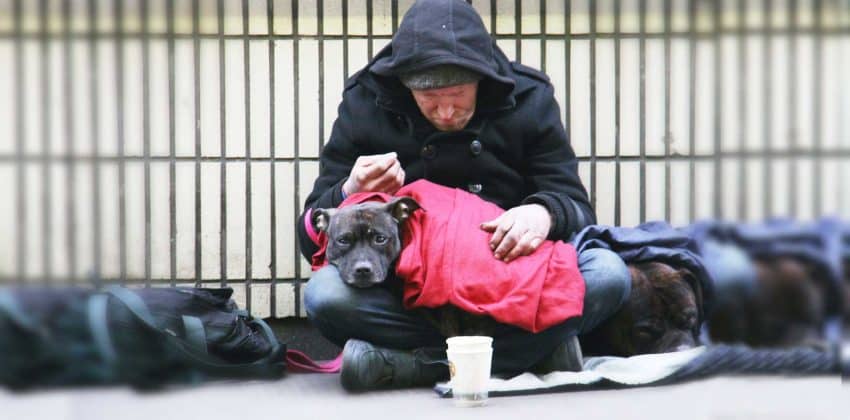Korea’s New Leader: Shaping the Future of the Dog Meat Trade
Last fall, the world leaned in intently with open ears after South Korean President Moon Jae In reportedly asked vice president Kim Boo Kyum, “Hasn’t the time come to end dog meat consumption?”. Following Moon’s comment, the government set up a task force with the responsibility of conducting an in-depth examination as to whether or not it would be in the public interest to ban the centuries-long practice of dog meat consumption in the country. The force consists of seven government offices, including the Agriculture Ministry, civilian experts, and officials from related organizations to gather information on dog farms, restaurants, and other facilities while examining public opinion in order to deliver recommendations on the subject matter.
In a statement released by Vice President Kim Boo Kyum, he acknowledged “as the number of families with pet animals has risen rapidly and public interest in animal rights and welfare has grown in our country, there have been increasing voices saying that it’s difficult now to see dog meat consumption as just traditional food culture”. However, he also conceded the initiative is not a guarantee of outlawing dog meat. He further stated “public awareness of the basic right (to eat preferred foods) and animal rights issues are tangled in a complicated manner” when it comes to dog meat consumption.
The lack of a clear position was quick to draw criticism and frustration from both dog meat farmers and animal welfare activists. On the one hand, the former accused the government of infringing on people’s right to eat what they want and impeding the industry’s farmers’ means of making a living. They argue that farmers are mostly poor, elderly people with few other options to maintain their livelihood. Coming to terms with the practice of dog meat consumption is a declining one, they assert the trade should remain legal and will inevitably taper off with a lack of demand in the next few decades. On the other hand, the latter criticized the government for not having any concrete plans on how to ban dog meat consumption and demanded laws be put in place sooner. They proclaim, in addition to the cruelty and abuse associated with the industry, “South Korea is the only developed country where people eat dogs, an act that is undermining our international image”.
New Leadership
On March 9, 2022, South Koreans headed to the polls to elect a new head of state as Moon is constitutionally limited to one 5-year term as president. The result declared Yoon Suk Yeol as his successor after narrowly defeating Lee Jae Myung by a 0.73% margin. In the events leading up to the election, animal rights and more specifically, topics surrounding dog meat farms and consumption had become a hot topic on each party’s platform, fueled by growing pet ownership in the country as well as the international spotlight and scrutiny shone on the industry during the 2018 Olympic games.
However, Lee has been no stranger to nor a bystander to the issue. In 2018, As the then-mayor of Seongnam, he initiated and led the closure of the Moran market, which was infamous for the sale of dog meat. He secured an agreement with the vendors, promising the city would help them transition to other industries to maintain their livelihoods. Lee has stood behind this approach with the understanding that an abrupt, outright ban on dog meat (consumption) could face strong protest, but believes it could be considerably alleviated if dog farmers were given appropriate compensation and guided support towards reasonable alternatives.
After he was elected and took office as the governor of Gyeonggi province, Lee continued his animal welfare initiatives, often collaborating with animal rights groups on a spectrum of issues and working to shut down illegal dog meat operations across the province. He has been an open and outspoken defendant in the dog meat trade abolition movement. While all other leaders have historically provided vague and ambiguous answers when asked their opinions on banning dog meat consumption, often stating a social consensus is needed, Lee’s position has remained staunch, clear, and consistent.
While Lee does not have companion animals of his own, his opponent (and now president-elect) Yoon, on the other hand, is a proud owner of 7 pets – 4 dogs and 3 cats. One of his dogs, Tori, a Jindo who was rescued from a shelter in Ulsan most recently garnered his own fame with his own Instagram account. Yoon will become the 20th president of Korea, and also now holds the record for the president with the most pets. In his party platform, he pledged to introduce a standardized system regarding medical expenses for pet care, eradicate illegal dog factories, and expand spaces in pet shelters.
Despite this, he gained less favor and hope with the animal rights community. His comments have drawn criticism from animal advocates after suggesting dogs raised for meat are different from companion animals, stating “Dog meat consumption is not a matter of animal abuse because dogs for meat are raised in a different environment from pet dogs”. He has also drawn controversy over allegations he relies on superstitious and shaman practices after being seen with the Chinese character “king” inscribed on his left palm during a TV appearance. This practice is mostly done on the advice of shamans and elders in the country to arm the bearer with courage and eloquence during school exams or job interviews. Superstition and fallacy are some of the main driving forces that keep the dog meat tradition alive today. The practice, which is especially popular during the summer, holds the belief that its properties enhance the immune system, stamina, and libido, alongside a myriad of other nutritional and healing properties.
Where are We Now? Where are We Headed?
Dog meat consumption is neither legal nor explicitly banned in Korea. Dogs are classified as livestock under the Livestock Industry Act but are excluded from the scope of livestock under the Livestock Products Sanitary Control Act. As a result, dog meat consumption falls into legal ambiguity. This also means they lack protection against proper sourcing, health, safety, quality control, and hygiene practices. Lawmakers have submitted bills to exclude dogs from the livestock list in a bid to prevent dogs from being slaughtered for meat at farms, but none of them have been passed.
Despite a country of an estimated 15 million pet owners, polls have shown mixed responses on the banning of dog meat consumption. In a 2020 opinion poll commissioned by Humane Society International (HSI), nearly 84% of South Koreans said they do not or will not eat dog meat. However, a local poll conducted recently by Realmeter reported despite personal preferences, 72.1% of respondents believe dog meat consumption “should be left to individual choice” while 21.5% said it should be prohibited by law. In Gyeonggi, Korea’s most populous province 64% said they support the idea of establishing a law banning dog meat consumption.
With a growing number of pet owners and animal activists in the country, the issue can no longer be ignored or met with complacency. Yoon is due to take office in May, while the task force is expected to make its recommendation in April. Seeds have been planted and the ball has been pushed into rolling motion. The question now is where the ball will roll, and how deep the roots will grow.
Subscribe for Updates
Get our dogs in your inbox once a month, along with our latest news and events. We never send spam, and you can opt out at any time.
